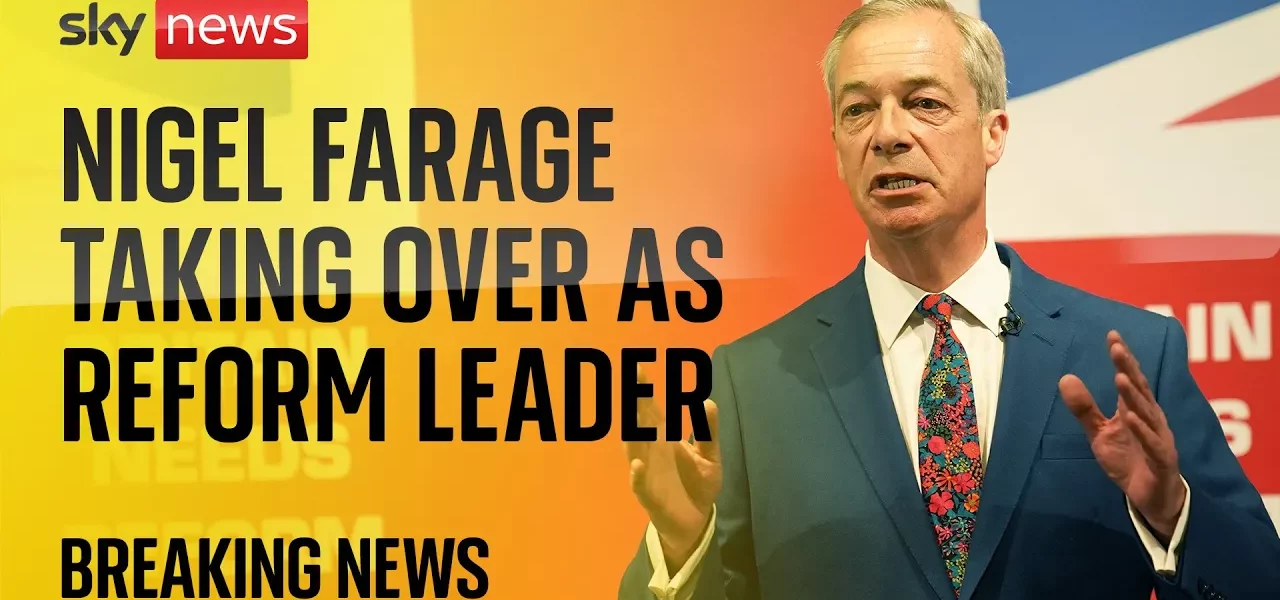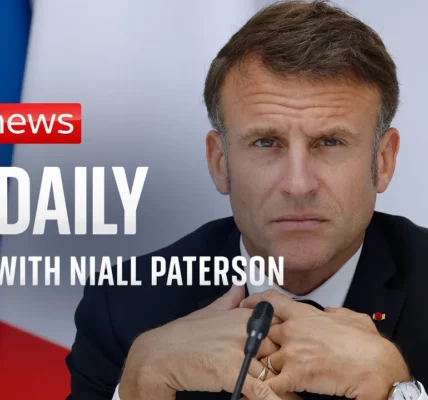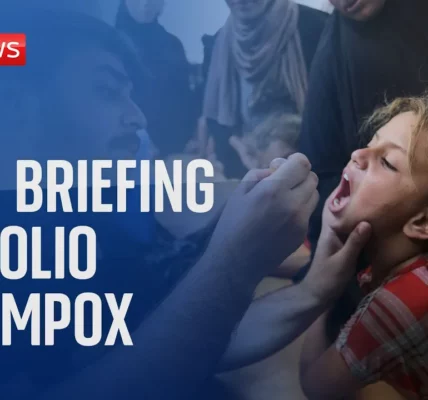Emergency Election Announcement: A Call for Political Change

This article delves into Nigel Farage’s recent declaration regarding his candidacy in the upcoming election. It explores the current political landscape, the pressing issues facing the nation, and the reactions from the public and media. The article aims to provide a comprehensive overview of the situation and its potential implications for the future of UK politics.
Introduction
In a dramatic turn of events, Nigel Farage has announced his candidacy for the upcoming election, marking a significant moment in UK politics. His announcement comes amid widespread dissatisfaction with the current political climate, characterized by high taxation, rising crime rates, and a perceived disconnect between the political elite and the average citizen. This article aims to dissect Farage’s statements, the reaction from the public, and the broader implications for the political landscape in the UK.
The Current Political Landscape
The political atmosphere leading up to the election has been described as the “dullest most boring election campaign” in living memory. This sentiment reflects a broader disillusionment with the two major parties and their leaders, who, despite attempts to differentiate themselves, often sound alarmingly similar. The issues at the forefront of this election include immigration, taxation, and crime, all of which are resonating deeply with voters.
Immigration Concerns
Farage’s comments highlight the ongoing concerns regarding immigration, particularly illegal crossings from the Channel. He criticizes the Conservative Party’s claims of reducing migrant numbers, calling out what he perceives as dishonesty in their messaging. This issue has become pivotal in shaping public opinion and influencing voter sentiment.
High Taxation and Economic Decline
Another critical point raised by Farage is the burden of taxation, which he argues remains at its highest since 1948. While politicians promise not to raise taxes, there is little discussion on how to alleviate the financial strain on citizens. The economic growth reported does not translate into improved living standards for many, as GDP per capita has reportedly declined.
Crime and Public Safety
Concerns over crime rates have escalated, particularly in urban areas like London. Farage points out that crime is so prevalent that many individuals no longer report incidents, reflecting a culture of fear and resignation. This issue underscores a growing public desire for effective governance and safety.
Farage’s Return to Politics
After initially stepping back from active politics, Farage’s decision to run again is driven by a sense of duty to his supporters. He acknowledges the need for a new political narrative and aims to position Reform UK as a viable alternative to the traditional parties. This section explores the motivations behind his candidacy and the strategy he plans to employ.
Reconnecting with the Electorate
Farage’s campaign aims to connect with voters who feel abandoned by the political establishment. His message resonates particularly with those running small businesses and those disillusioned by the lack of representation in Westminster. By emphasizing real-life experiences and practical solutions, Farage seeks to mobilize a grassroots movement.
The Role of Reform UK
As he launches his candidacy, Farage reaffirms his leadership of Reform UK, positioning the party as a challenger to both the Conservative and Labour parties. He aims to capture a broad spectrum of voters, including those who previously aligned with Labour, by addressing issues like immigration and economic management directly.
The Future of UK Politics
Farage’s return to the political arena is indicative of a larger shift in UK politics, where traditional party loyalties are being challenged. This section examines potential outcomes of the upcoming election and what Farage’s candidacy means for the political landscape moving forward.
Potential Electoral Reform
One of the key discussions surrounding this election is the need for electoral reform. Farage suggests that the current system disproportionately favors established parties, leaving new entrants like Reform UK at a disadvantage. Advocating for a more proportional representation system could reshape the political dynamics in the UK.
Public Sentiment and Voter Engagement
There is a palpable shift in public sentiment, with many citizens expressing a desire for change. Farage’s ability to galvanize this frustration into actionable votes could be a game-changer in the upcoming election. Engaging younger voters and those previously disenfranchised is crucial for his campaign’s success.
Challenges Ahead
Despite the enthusiasm surrounding his return, Farage faces significant challenges, including overcoming the entrenched party system and appealing to a broad voter base in a short timeframe. His strategy must effectively communicate a clear vision for the future while addressing the pressing concerns of the electorate.
Conclusion
In conclusion, Nigel Farage’s announcement to run in the upcoming election represents a critical juncture in UK politics. His focus on immigration, taxation, and crime resonates with a public eager for change. Whether he can effectively translate this sentiment into electoral success remains to be seen. As the political landscape shifts, voters must consider their options carefully. For those seeking a voice that aligns with their concerns, the emergence of Reform UK may offer a compelling alternative. Stay tuned for further developments as the election approaches, and consider engaging with your local representatives.
“`




